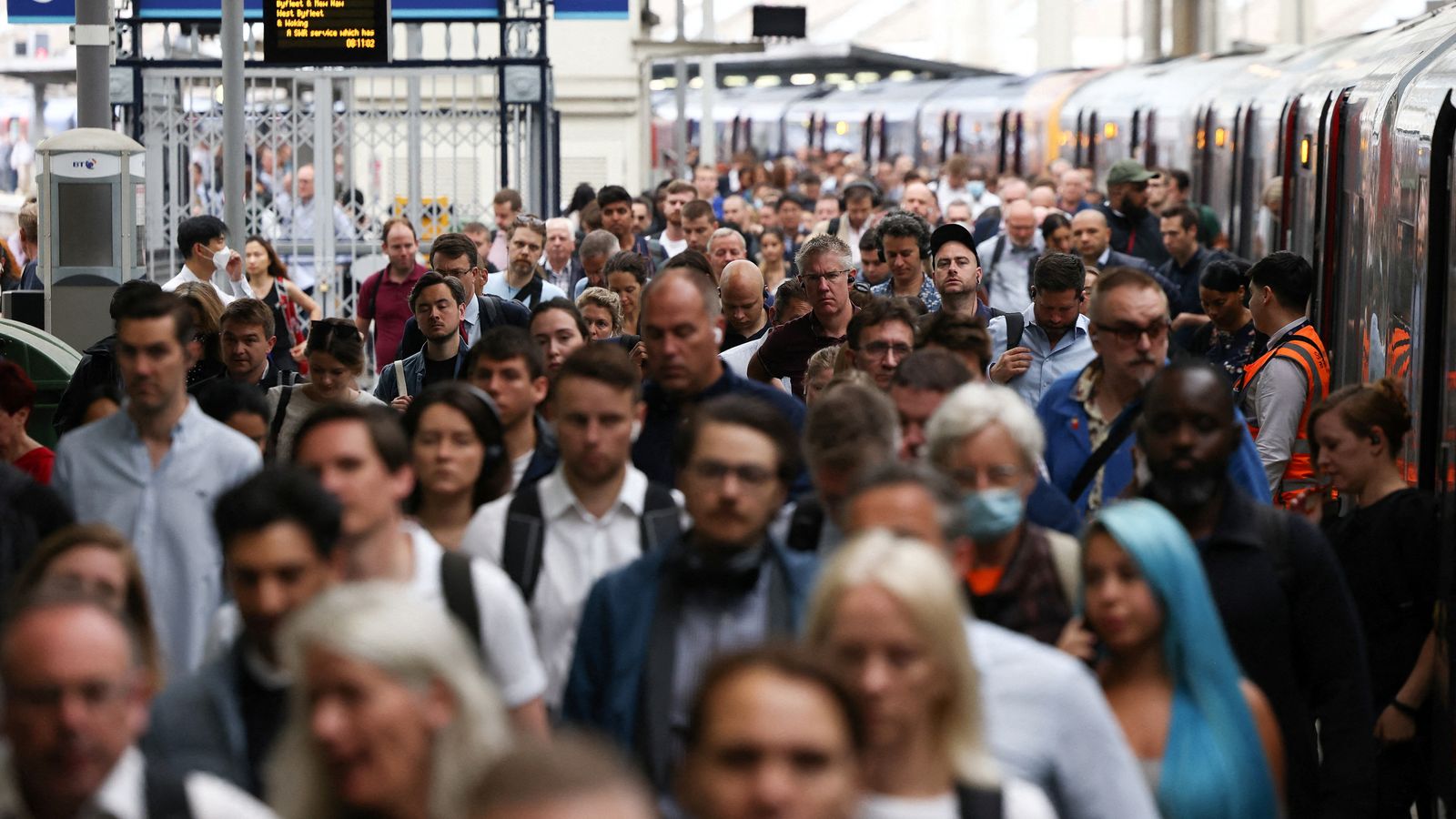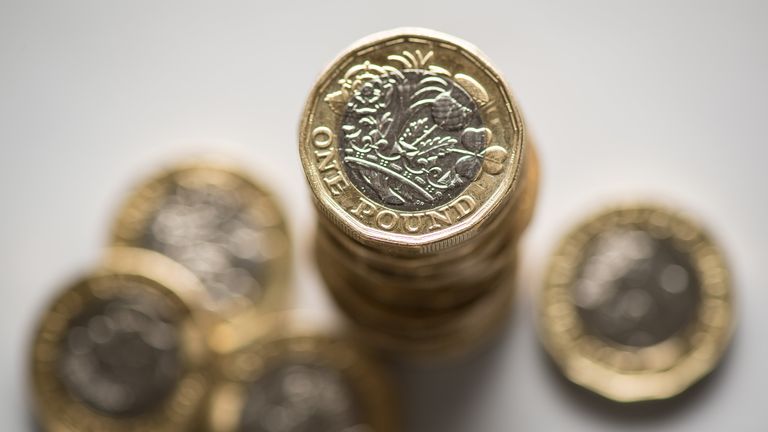Any rise in rail fares in England next year will be below the Retail Prices Index (RPI) rate of inflation, the government has promised.
The RPI figure – which is a measure for inflation – for July is due to be released on Wednesday and usually helps determine the cost of train tickets for the following year.
But the Department for Transport (DfT) promised that any increases will be below that in order “protect” passengers from cost of living pressures.
The expected hike in prices will also be delayed until March 2024.
It follows a similar announcement last year, when ministers said ticket increases would instead be linked to average earnings growth in July 2022, which was 5.9%.
However, that still amounted to the biggest fares hike in more than a decade when the new prices came into force earlier this year.
A DfT spokesman said: “Following last year’s biggest ever government intervention to cap rail fare increases well below inflation, we’ll continue to protect passengers from cost of living pressures and we will not increase next year’s rail fares by as much as the July RPI figure.
“Any increase will also be delayed until March 2024, temporarily freezing fares for passengers to travel at a lower price for the entirety of January and February as the government continues with its plan to halve inflation.”
Read more from Sky News:
UK nears potential turning point in cost of living crisis
Grocery price inflation falls for ‘fifth month in a row’
Crypto boss ‘donated stolen customer funds to politicians’
But pressure group Campaign for Better Transport said ministers should instead keep fares unchanged “in recognition of the burden high fares place on rail passengers”.
Chief executive Paul Tuohy said: “The government should freeze rail fares – as they have done with fuel duty – until the long-promised ticketing reform takes place.”
The DfT said details about next year’s fares will be announced at a later date.
Meanwhile, average earnings growth in the three months to June was up 7.8% year-on-year. The figure for July will be published on 12 September.
It comes amid ongoing concerns about the state of Britain’s rail network, months of disruption because of rail strikes, and heavily-criticised proposals to close nearly every railway station ticket office across England.
Anthony Smith, chief executive of watchdog Transport Focus, said: “Nobody likes their fare going up, but after a year where many journeys have been blighted by disruption due to industrial action and patchy performance, passengers will be relieved to hear that fares will be capped below the RPI and any increases will be delayed until March next year.”
The Scottish and Welsh governments are yet to announce their policies for rail fares next year.

